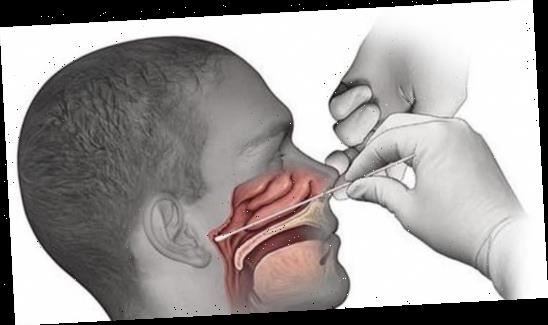THOUSANDS of Brits may have been told they're coronavirus free after the swabs they used to test themselves don't go deep enough into the nose, experts fear.
Anyone who has symptoms of the virus can now book an appointment to get tested a drive-thru or have one posted to them.
⚠️ Read our coronavirus live blog for the latest news & updates
Experts are warning that self-tests are less accurate because they use shorter swabs and do not need to be inserted as deeply in the nostril.
The instructions on the test say: "No force is needed and you do not have to push far into your nostril."
The professional-used swabs are much longer and are designed to take samples from the "floor" of the nose.
They can make patient's eyes water, trigger nosebleeds or make people gag.
Infectious disease specialists say people doing the swabs themselves can make false negatives more likely.
False negatives mean people infected with Covid-19 are wrongly being told they are virus free.
The current guidelines in the UK don't tell people to stay home after they receive a negative test, even if they have symptoms.
Professor Jon Deeks, a biostatistics expert at the University of Birmingham, told the MailOnline: "A single negative test result doesn't exclude the disease.
"You can so easily miss the virus – they give a lot of false negatives."
FALSE NEGATIVES
Research suggests up to 30 per cent of professional swabs produce false negative, which means the number of positive cases could be underestimated by thousands.
It isn't clear how inaccurate the self-swabs are, but more than 60,000 are being carried out a day in the UK.
The Department of Health does not release data about false negatives tests.
However, previous studies have shown self-swabbing can be effective if patients have professional supervision.
Dr Andrew Preston, an infectious lung disease expert at the University of Bath, told MailOnline that shallower swabs in the nose and mouth were not as good.
He said: "It’s clear the deeper into the nasopharynx, the better it is picking up the virus."
Dr Preston added: "We consider it an unsuccessful swab unless the eyes water. We see real, real issues with the sensitivity of the swab if swabbing in nose.
"The further back you go, the more chance you’ve got of getting the virus."
Professor Lawrence Young, a virologist at Warwick University, added that deciding someone's health status based on one test means it absolutely must be accurate.
Nasopharyngeal swabs are the ones carried out by medical professionals.
A long flexible cotton bud is meant to reach the mucous membrane of the cavity with muscle and connective tissue.
The tests people take themselves only need to go a centimetre or so inside the nostril.
The Department of Health revealed 60,209 tests were sent to people's homes yesterday.
A further 34,526 in-person tests at drive-thrus were carried out, but it is understood a majority of those were done by members of public themselves.
The Department of Health said: "The tests at these regional test sites are designed to be self-swab and have clear instructions but if people need help, they can easily alert a member of staff who can assist.
"Hundreds of thousands of people have successfully used the drive through sites and it has always been the case that they can either be self-administered or carried out by a medical professional."
Source: Read Full Article




